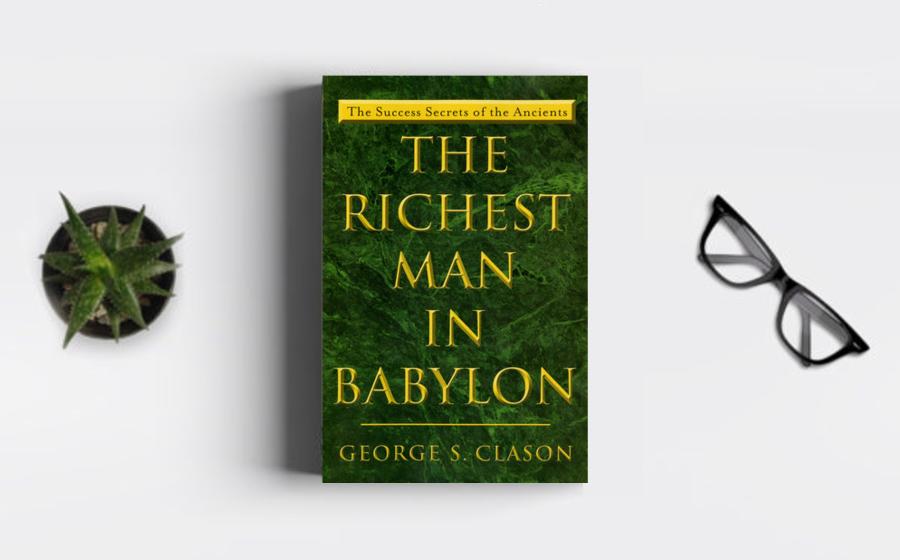"The Richest Man in Babylon" by George S. Clason is a
classic personal finance book that offers timeless
principles for achieving financial success. Set in
ancient Babylon, the book presents a collection of
parables and stories that revolve around the core
principles of money management and wealth building.
Through the experiences of various characters, the
author imparts valuable lessons on saving, investing,
and making wise financial decisions.
The central
theme of the book is the importance of taking control of
one's financial destiny and applying simple yet powerful
principles to build wealth. The narrative is structured
as a series of conversations between a wise and wealthy
man named Arkad and a group of individuals eager to
learn the secrets of financial prosperity. Arkad shares
his wisdom by recounting his own journey from a humble
scribe to the richest man in Babylon.
One of the
key lessons emphasized in the book is the principle of
saving a portion of one's income. This is exemplified
through the story of Arkad's childhood friend Algamish,
who imparts the wisdom of saving at least 10% of one's
earnings. The concept of "paying yourself first" is a
cornerstone of personal finance, encouraging readers to
prioritize saving before allocating money to other
expenses.
The book also stresses the importance
of making informed and strategic investments. Arkad
emphasizes the need to put money to work and to seek
opportunities that provide a reasonable return on
investment. The parable of the gold lender showcases the
potential for wealth accumulation through careful and
calculated investments.
Additionally, "The
Richest Man in Babylon" advocates for seeking sound
financial advice and learning from those who have
achieved success in the realm of money management. The
characters in the book often turn to Arkad for guidance,
highlighting the value of mentorship and learning from
those with proven expertise.
Another significant
principle is the avoidance of debt and the importance of
living within one's means. The book warns against
borrowing for non-productive purposes and encourages
readers to prioritize financial stability over impulsive
spending. The parable of the five laws of gold outlines
fundamental principles such as ensuring a profitable
return on investments and guarding against loss.
Furthermore, the book delves into the psychology of
wealth and the mindset required to attain financial
success. It emphasizes the role of discipline,
perseverance, and the ability to resist immediate
gratification in the pursuit of long-term financial
goals. The parable of the camel trader illustrates the
consequences of succumbing to the temptation of quick
riches without careful consideration.
"The
Richest Man in Babylon" employs engaging storytelling to
convey its financial wisdom, making the lessons
accessible and relatable. The use of ancient Babylon as
the backdrop adds a layer of intrigue and timelessness
to the principles presented. The stories are woven with
vivid imagery and memorable characters, enhancing the
overall impact of the lessons.
The book's
enduring popularity can be attributed to its simplicity
and applicability across different economic and cultural
contexts. The principles outlined in the book are not
bound by time or place, making them relevant to readers
of various backgrounds and experiences. The universal
nature of the lessons ensures that the book remains a
valuable resource for individuals seeking to improve
their financial well-being.
In terms of
inspiration, "The Richest Man in Babylon" motivates
readers to take proactive steps toward financial
empowerment. The success stories and practical advice
instill a sense of hope and possibility, demonstrating
that financial success is attainable through disciplined
and principled actions. The book serves as a call to
action, urging readers to assess their financial habits,
set goals, and implement the timeless principles
outlined in its pages.
Moreover, the book
encourages a shift in mindset from a focus on immediate
consumption to a long-term perspective on wealth
creation. By illustrating the consequences of poor
financial decisions and the rewards of prudent choices,
"The Richest Man in Babylon" inspires readers to adopt a
more strategic approach to their finances.
"The Richest Man in Babylon" is a compelling and enduring guide to financial success. Its timeless principles, conveyed through captivating stories set in ancient Babylon, continue to inspire and empower readers to take control of their financial destinies and achieve lasting financial prosperity.






